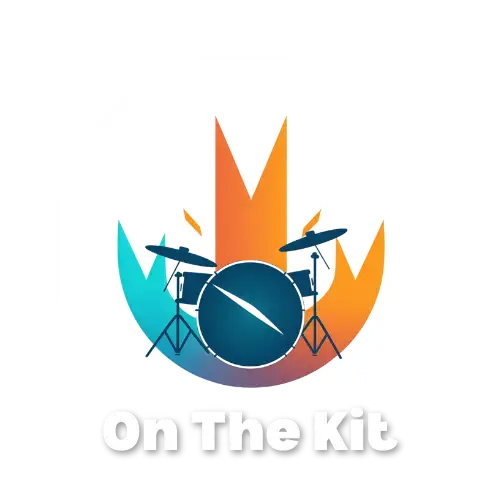Drumming is a passion that requires dedication, discipline, and practice. However, with the right tools and resources, you can improve your skills without breaking the bank. Fortunately, there are numerous free tools and resources available to help drummers practice, record, and learn new techniques.
Whether you’re a beginner or an experienced drummer, these tools can help you take your drumming to the next level. This article provides a comprehensive list of free tools for drummers, including drumless tracks, metronomes, virtual and written resources, drum lessons, and education.
By utilizing these tools, drummers can enhance their abilities, improve their timing and rhythm, and learn new techniques. Whether you’re looking for ways to practice at home or seeking guidance to develop your skills further, this article has something for you.
So, let’s dive in and explore the range of free tools available to help you improve your drumming skills today!
Key Takeaways
- Drummers can improve their skills with free tools and resources like drumless tracks, metronome apps, DAWs, and drum VSTs/samples.
- Online platforms like Drumeo offer hundreds of free drum lesson videos and a free week trial of their paid membership platform.
- Music transcription/scoring programs like Musink Lite, MuseScore, and Guitar Pro (7-day free trial) can help drummers learn songs and improve their reading skills.
- Virtual drumming websites like virtualdrumming.com provide free features for building virtual drum kits and tapping along to songs.
Drumless Tracks and Metronomes
Drummers can enhance their practice sessions with the help of drumless tracks and metronome apps, which are among the free tools and resources available for improving drumming skills.
Drumless tracks are recordings of songs with the drum parts removed, allowing drummers to play along and hear their own playing more clearly. This is a great way to practice timing, groove, and fills without the distraction of other instruments.
Metronome apps, such as Tempo Lite, provide a steady click track to help drummers improve their timing and control. By adjusting the tempo and time signature, drummers can use metronomes to practice various drumming exercises and tempo control techniques.
Drumless tracks and metronome apps are valuable tools for drummers of all levels. They can be used for solo practice, rehearsal, and recording sessions. With the ability to customize settings and choose from a variety of genres and styles, drummers can tailor their practice sessions to meet their specific needs and goals.
By incorporating these free resources into their practice routines, drummers can improve their skills and ultimately become more confident and versatile musicians.
Virtual and Written Resources
Virtual drumming and music transcription programs are examples of resources that can aid in the development of musical proficiency for those interested in drumming. Virtual drumming allows drummers to practice and play along with various songs and build their skills in a digital environment. Websites like virtualdrumming.com offer free features for building virtual drum kits and tapping along to songs, providing an interactive way to practice drumming techniques.
Music transcription programs, on the other hand, allow drummers to convert audio recordings into sheet music or drum notation. Programs like MuseScore and Guitar Pro offer free trials and can be used to transcribe drum parts from popular songs or create original drum compositions. These resources not only aid in the development of drumming skills but also provide opportunities for creativity and self-expression.
Additionally, online communities like Drumeo allow drummers to connect with others and access a wealth of knowledge and resources for improving their craft.
Drum Lessons and Education
Education and learning opportunities for drumming can be found through various resources such as online lessons, instructional books, and workshops. Online drum lessons have become increasingly popular due to their convenience and accessibility. Platforms like Drumeo offer thousands of lessons from world-renowned drummers, covering various genres, drumming techniques, and practice routines. These lessons are usually structured in a step-by-step approach, allowing drummers to progress at their own pace.
Additionally, instructional books and DVDs are useful resources for those who prefer a more traditional approach to learning. These materials usually offer in-depth explanations of various drumming techniques, exercises, and practice routines.
Workshops and clinics provide an excellent opportunity for drummers to learn from experienced professionals and connect with other drummers. These events are often hosted by music stores, drum companies, or music schools. They offer a chance for drummers to ask questions, receive feedback, and learn new techniques in a hands-on environment. Workshops and clinics are also an excellent way to network and meet other drummers who share similar interests.
No matter what resource a drummer chooses, education and continuous learning are critical for improving drumming skills.
Frequently Asked Questions
Are there any free software or tools available for drummers to record and edit their own drum tracks?
There are several free drum recording software options available for drummers to record and edit their own drum tracks. Tips for editing drum tracks can be found through online resources such as forums, tutorials, and instructional videos.
How can drummers find free drum samples and VSTs to use in their productions?
To find free drum sample packs and VST plugins, drummers can search online for options such as DrumMic’a by Sennheiser and MT Power Drumkit 2. Tips for using free drum software include experimenting with different settings and layering sounds for a fuller sound.
Are there any online forums or communities specifically for drummers to connect and collaborate with other musicians?
There are numerous online drum communities available for drummers to network with fellow musicians and collaborate on projects. These communities provide opportunities for peer feedback, skill development, and building connections within the music industry.
What are some common mistakes that drummers make when practicing and how can they avoid them?
Common mistakes drummers make when practicing include lack of focus, improper technique, and neglecting to practice with a metronome. Improvement techniques include setting specific goals, practicing slowly and consistently, and seeking guidance from experienced drummers or teachers.
How can drummers improve their live performance skills and stage presence?
Live performance tips for drummers include practicing with a metronome, rehearsing with the band, and developing stage presence through body language and engaging with the audience. Confidence building can be achieved through preparation and positive self-talk.


Comments